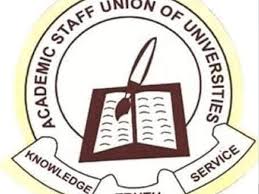The Joint Admissions and Matriculation Board has said it could not release the results of over 40,000 underage candidates who sat the 2025 Unified Tertiary Matriculation Examination until the Court of Appeal rules.
The statement came in response to public outcry over the release of the 2025 UTME results and the withholding of the results of over 40,000 underage candidates.
JAMB had, in February 2025, appealed a ruling by the Delta State High Court, which barred it from enforcing its policy mandating a minimum admission age of 16 years, pending the hearing and determination of a suit filed against the board.
In July 2024, the immediate-past minister for education, Prof Tahir Mamman, set 18 as the minimum age for admission; his successor, Dr Tunji Alausa, reversed the policy to cap the admission age at a minimum of 16 years.
JAMB, however, said exceptionally brilliant candidates below 16 years could sit for its UTME.
A lawyer, John Aikpokpo-Martins, took JAMB to court, arguing that JAMB’s restriction of university admissions to candidates aged 16 and above violated sections 18(1) and 42 of the 1999 Constitution.
Justice Anthony O. Akpovi, in his ruling, declared the policy unconstitutional, adding that it discriminated against qualified candidates solely based on age, denying them equal educational opportunities.
The JAMB’s directive of October 16, 2024, which mandated tertiary institutions to admit only candidates who turn 16 by August 31, 2025, was also declared null and void.
The court ordered universities and JAMB to admit all qualified candidates who meet the requirements, regardless of their date of birth.
An injunction was granted, preventing JAMB and all universities from enforcing any age-related restrictions on admissions.
Speaking with our correspondent in Abuja, the Head of Protocol and Public Relations, JAMB, Dr Fabian Benjamin, said, “We appealed the ruling. The release of the result is subject to the appeal court ruling.”
Meanwhile, the House of Representatives Committee on Basic Education and Examination Bodies has apologised to Nigerians over the technical issues that marred the conduct of the 2025 UTME, attributing the glitches to human error rather than a system failure.
Speaking to journalists on Tuesday at the National Assembly Complex in Abuja, the Chairman of the Committee, Oboku Oforji, explained that preliminary investigations into the issue had revealed that the problem was caused by human negligence, contrary to the earlier claim by JAMB that it was a technical malfunction.
Recall that on May 9, JAMB released the results of the 2025 UTME, which showed that over 78 per cent of candidates scored below 200 out of the total 400 obtainable points. The poor performance had sparked public outrage and calls for accountability from stakeholders across the country.
In response, the House of Representatives, on May 15, passed a resolution to investigate the alleged technical failure that affected the conduct of the examination.
Addressing the issue, Oforji said, “We sincerely apologise on behalf of the examination body to all Nigerians. The committee recognises the courage and sincerity of the JAMB Registrar, Prof. Ishaq Oloyede, for accepting the fault on behalf of his team and apologising to the parents, candidates, and the nation in general. However, these human errors were avoidable because they resulted from negligence within JAMB.”
He praised the commitment of Nigerian students, who despite the challenges, remain eager to pursue their academic dreams for a better future.
“The committee also appreciates the eagerness and determination of Nigerian students in pursuing their education to improve the future of our country,” he added.
Oforji, however, maintained that despite the regrettable errors, JAMB’s operational consistency throughout the entire examination process—from registration to result release—should not be overlooked. He noted that the Board’s efforts to maintain structure and order in the face of mounting pressure from candidates and their families had been commendable.
The Committee Chairman concluded by calling for an “independent and thorough investigation” into the circumstances surrounding the errors, stating that his committee had proposed a series of reforms to the examination body to ensure such incidents do not recur







